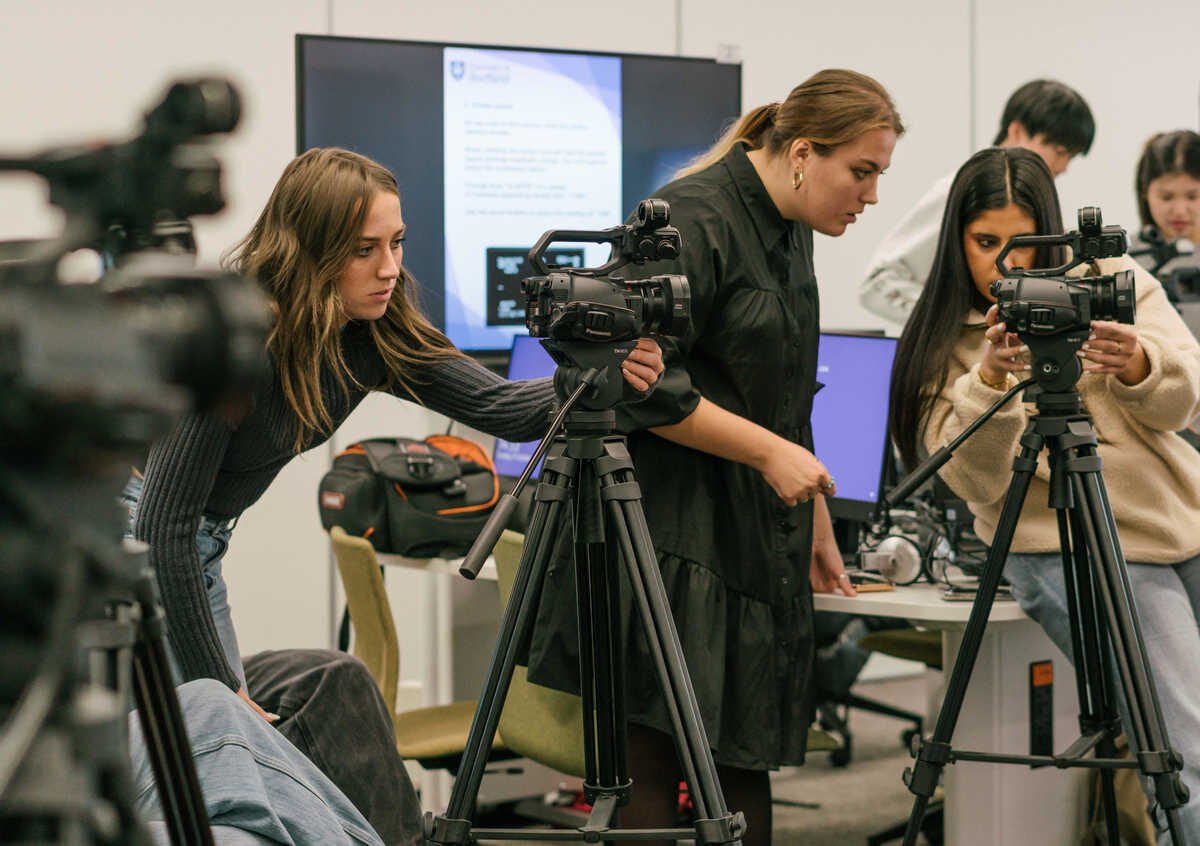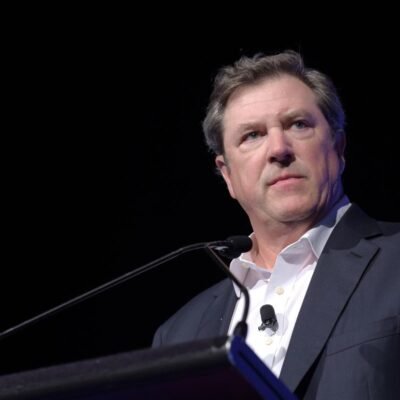Course description
We believe that science holds the key to making the world a better place, and that when science is misunderstood, the consequences can be dire. Science communicators are essential, and we want to train you to do it well.
This course will help you to develop the skills to communicate science effectively to a wide range of audiences. It’s designed around developing you as a science communicator, rather than being a marketing course, and is taught by leading scientific researchers, professional science broadcasters, and experts from the School of Journalism, Media and Communication.
Through hands-on training, you’ll learn how to engage, educate and entertain people without the same specialist knowledge, covering the latest topics in science. You’ll target a range of different audiences, from science policy and business sectors, to the general public from all ages and backgrounds, giving you an insight into the breadth of potential science communication careers you could pursue.
Training can cover:
- Audio: receive storytelling training ready to create your own short podcast. You’ll do the scripting, interview subjects, pitch your story, and gain the technical skills to record and edit your episode in the industry standard Adobe Audition.
- Video: we’ll show you how to create video content suitable for various platforms. You’ll receive training in how to operate a camera, lighting and sound, and use the Adobe Creative Suite including Premiere Pro to edit your footage and create slick clips.
- Photography: you’ll learn how to use specialist cameras, and Adobe Photoshop, to create and edit images to take your digital science communication to the next level.
- Public engagement: you’ll work with your course mates to run an event for schools and deliver this as part of a science fair.
- Journalism: understand the nature of social science research and the agendas that drive science communication by studying research methods.
- Data journalism: learn how to seek out stories within datasets, and bring those stories to the public via news media.
- Communicating with the media: learn how to get your story out there, and run a strategic media campaign.
- Ethics: discover the relationship between science, the media, and the wider public, and the role that science communication plays in society. You’ll cover journalism ethical standards expected by the British Association of Journalists.
By completing these activities you’ll develop a range of skills and experience to include on your CV, whilst also building a portfolio of high quality science communication work that you can take to interviews.
Your final project dissertation will allow you to put the skills you’ve learnt into practice and can be based around a print, broadcast or digital portfolio, an event you’ve organised or a work placement you’ve completed. Previous students have based their dissertation around work they’ve completed at organisations ranging from National Geographic, to the CERN research institute in Switzerland.
This is your opportunity to showcase your skills and independence, and gain additional experience to launch yourself into the next stage of your career.
Example past research projects include:
- An analysis of language and framing in cancer related news coverage
- What is the future of the Yorkshire Fossil Festival? Gaining perspectives from exhibitors, organisers, and visitors at the festival’s 10th anniversary
- Let them lead the way: engaging children in climate policy
- The role of social media in the dissemination of public health messaging
- Writing women into the history of science; challenging the gender gap in STEM
No matter what your science background is, if you have a passion for science communication, this course is for you! Our students have studied undergraduate engineering, maths, physics, biology, chemistry, psychology, and everything in between. At Sheffield, you’ll be embedded in a diverse and supportive group of peers as you take your first steps towards your science communication career.
Meet Dr Tori Herridge
Science Communication MSc Course Director and Senior Lecturer in the School of Biosciences
“My academic research focuses on evolutionary biology, and the impact of environmental change on the natural world. I use the Pleistocene (aka ‘the Ice Age’) as a study system to consider these topics in a ‘real-world, real-time’ setting.
“I also have a parallel career in science communication, with 20 years experience in the Museum sector and 10 years experience in specialist factual broadcasting. I have presented multiple TV series for Channel 4, National Geographic, PBS, and the Smithsonian Channel, radio series for BBC Radio 4, and I am an ARIA-award winning podcaster. I have science writing bylines in The Guardian, The Observer, CNN, The Evening Standard, and Nature.
“My unconventional career path means I straddle the worlds of science AND science communication, with real-world experience and networks that span the industry – from broadcasting, to museums, to publishing – and this underpins my teaching. I can’t wait to share this with you all.”
Teaching
Teaching is led by expert scientists who have a wealth of experience in sharing their work with the public, and professional journalists with backgrounds in print, broadcast and online journalism, from Fleet Street to the BBC and Channel 4.
You’ll also meet regularly with your designated personal tutor and your project dissertation supervisor.
At Sheffield we have a long track record of delivering excellent science communication and outreach work to a huge variety of audiences. Projects have included local and national festivals, schools activities and media work, giving you plenty of opportunities to get involved and put your skills into practice alongside your studies.
Your career
Through practical training and opportunities to get involved in science journalism, film and audio production, public engagement and event organisation throughout your degree, you’ll be in a great position to pursue exciting careers across science, technology and the media.
Previous graduates are now working in press offices, newsrooms, research institutes and charities, in roles ranging from marketing and communications, to planning, outreach and education.
Example roles include:
- Development Editor, Oxford University Press
- Science Journalist, Research Publishing International
- Senior Medical Writer, International Medical Press
- Events Assistant, The Royal Society of Biology
- Corporate Communications Manager, NHS Education England
- Press Officer, Zoological Society of London
- Senior Partnership Manager, Nigeria Health Watch
Entry requirements
Minimum 2:1 undergraduate honours degree in a relevant subject.
Subject requirements
We accept degrees in the following subject areas:
- Archaeology
- Biochemistry
- Biology
- Biomedical Science
- Chemistry
- Computer Science
- Earth Science
- Engineering
- Genetics
- Geography
- Geology
- Human Sciences
- Mathematics
- Mechanical Engineering
- Medicine
- Molecular Biology
- Physics
- Psychology
- Zoology
English language requirements
IELTS 7 (with 6.5 in each component) or University equivalent
If you have any questions about entry requirements, please contact the school/department.






